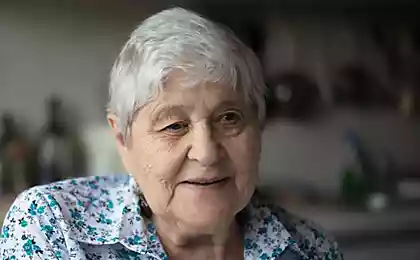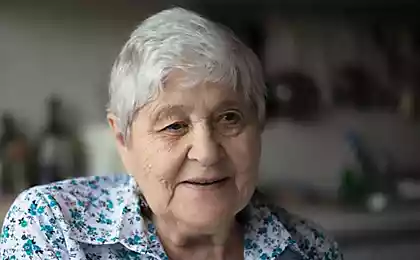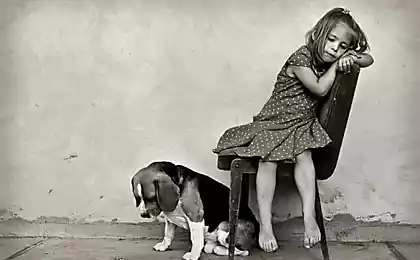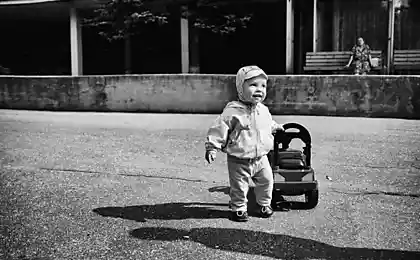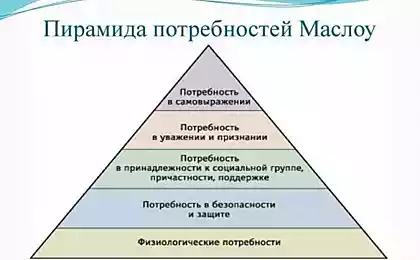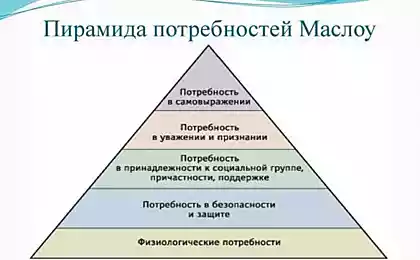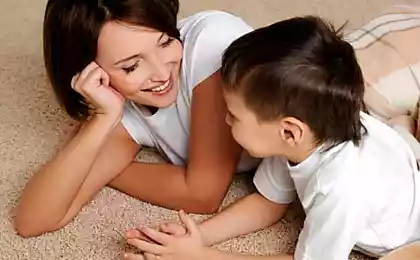600
Julia simultaneously about "Should" and "do Not want"
Julia B. Gippenreiter – one of the most famous Russian child psychologists, best-selling author "to Communicate with the child. How?" and "we Continue to communicate with the child. So?"
Julia B. in dialogues with parents and children, with specific examples shows how to resolve conflicts that have already happened and how to predict. How to communicate with children and how to talk with them so they trusted and talked about their experiences. How to form the correct approach to education-working mom, and more!

"Must" and "do not want"
Mom: Son is 4 years old. Very shy all the time by himself, with no one says Hello or goodbye. Go somewhere: "Sasha, do I need to say something?" Or when they leave: "Sasha, what do you say? Say "goodbye"!" — is silent. Do I need to make?
EB: Maybe he just wants thinks to himself, "Leave me alone with these "Hello" and "goodbye". I'll never tell!"
Then it's a healthy reaction to violence. Somewhere you serve, and continue to press on. That's all. But he is not so much shy as simply fighting for themselves, for their own decision. Tell him sometimes: "Sasha, we're coming to visit, just don't say Hello! In any case!" Will see, soon he will be corrected.
Mom: in General, how to be polite, responsibilities and discipline?
Yb: the Child must learn a lot of skills and abilities: to accustom to the pot, spoon, brush your teeth, do not leave the table before the time... you Should try to make these habits were included in the child's life gradually, without undue effort or conflict. A child stops to do something, if the parent without respect, without regard to his condition insists and takes drastic measures.
Try sensitive things to work out in a peaceful tone. Also don't be afraid to joke, play, invent, humor and playfulness in communicating with children is very necessary.
Do you think habits are developed from the hard hammering? No. They are produced gradually, in a friendly communication.
It is not necessary to replace the regularity and gradually working out habits demands. You can use a note, a picture, reminiscent of what to do. For example, for a flower to glue a piece of paper: "fields me, please." Wake the child in school is also not necessary, replace yourself with alarm clock. Late, skipped — not your problem.You can feel for him: Yes, it is unpleasant!
Mom: at what age can give your child responsibility for his recovery?
Yb: 4-5 years already. I will tell the story of a family.
Imagine: the Kola Peninsula, winter, polar night. Two children: boy 5 years, girl 3 years are up in the garden. Brother wakes sister, they dress up, fur coats and hats come to the bedside of parents who just rubbed his eyes and said, "Mom, dad, we went to kindergarten" (it's near the house).
Let yourself be inspired by the shining image of these children! But not the phrase: "come on, we'll be late!", "What are you doing, cover your Breasts!"
Mom: How to make, that children have been disciplined?
J. B.: Try to behave a little differently. Get off of him, it does not block the development of their own unrest.
Mom: My child all the time jumps, gallops, runs, not sitting in one place for a minute. He is 6 years old, he is hyperactive, perhaps, all the teachers are complaining. What to do?
Yb: Once a mother complains that he doesn't know how to manage, so it's not the child, but in herself. He "rushes", maybe because seeking freedom, which is not enough.
Mom: So, I tell him: "Go anywhere on the hill, at the tree on the fire escape"?
EB: Maybe so. Recently there was a transfer, where the actor talked about himself. He is an old man and, incidentally, mentioned his five year old grandson. A grandson once said, "In the end, I am a free person!" I asked him: "What does that mean?" "It means that I can run, jump, when I want and how I want!"
So run, jump, live! And you give to live your child!

When Korney Ivanovich Chukovsky were old and it was a pain and lived in the country. To him, a great famous Chukovsky, led a squad of children on a tour of the school. The boys scattered in a garden — who is where, play, frolic. He looked with pleasure at all this. And then the teacher was alarmed: "Peter, where are you going (on the tree)! Now get down!" But Chukovsky heard and shouts: "Peter, boy, climb, climb, don't listen to the aunt!"
He also raised and their children. Parents who are sighing and groaning helpful to read the memoirs of his daughter.
Mom: eight month Old child does not respond to my requests. How to convince him? You give a lot of wise counsel, which in practice I have fails to apply. My son is 1.5 years. He's not responding to my requests, if actions are not interested in him. He either continues to engage in with toys, not paying attention to me either running away or actively fighting back. For example, if you try his novels to wash their hands before eating. Arguments and persuasion are not willing to listen, often to raise his voice that really bugs me.
I understand that it should not be. I must be doing something wrong. What do you think, what was my mistake? Can you please tell me how to behave in such situations, stubbornness and manipulation on the part of the son?
Yb: how you describe life with your toddler, it happens to many parents who are trying to raise a child "very carefully" and "correctly". This desire is commendable, but, unfortunately, it often leads to "excesses" and loss of flexibility in the relationship with the child. And this, apparently, happened.
The main feature — too many points of disobedience. This constant resistance usually occurs in a child when setting the parent insisting on their "must"!
Toddlers and children of any age do not tolerate coercion. When a parent desires in conflict with his desires or interests, it meets the "willfulness" and "stubbornness"! These reactions are natural, and even in a sense positive: the child manifests his will to actively protect themselves.
Whether necessarily it to "push", insisting on his? In my opinion, is not necessary! Of course, it all depends on the "problem", for example, from fire it should just pull!
But your main problem rested in a normal household actions. Some of them for 1.5 year old boy difficult, such as holding spoon, or time to think about the pot, others interesting, and others do not understand — what for something to wear or eat, when Megalodon? And he refuses.
You ask: what then to do, if not to compel? The clash "should" and "do not want" is a problem for any parent. You are not alone. You lot already tried: argument and persuasion, raising the voice, distraction and entertainment. For example, during feeding give a toy or even sing — and then he opens his mouth. Unfortunately, all this does not bring the desired results. You wonder: what's wrong here?
In my opinion, the trouble is that by the 1.5 year old age your child accumulated "experience of disobedience," and it's set obviously in the negative to any proposal. That means we need to change the style of communication with him. Should be much more sympathetic to his difficulties, desires and undesirables. He knows that you understand him if you speak to him in the style of "active listening", which you can read in my books. For example, during a meal to say: "You don't want to eat this with a spoon, and you want ....", or — "You don't want to eat at all," instead of singing, in the hope that it will open its mouth and you will cram him food!
Clear the table, saying, "Good, eat more will not." These words and actions you show that you believe him, his desires, or unwillingness.
As a result, he will receive an entirely new experience: he learns that the mother is ready to hear it and agree with him. Agree, "to persuade" and "negotiate" — very different things. Losing at some point, you will receive a much more valuable result: a kid will have more trust in you as a whole, your words and requests. And in fact, judging by your description, he seems to have nothing good will come from the mother's "education" — just in the mood to fight!
There is another way, which will help your child to listen to your words, are messages about themselves, their desires and grievances (the so-called "I-messages"). They serve very good substitute for raising of the voice of criticism and punishments, and also lead to a greater understanding of each other.
I want to remind you about the importance of collaborative games and activities with the child, especially in that he is interested. And again the trust, and with it the obedience of a child increases when the parent finds the time and desire him interesting to play.
If you do all of the above, then "educate" especially and is not necessary — the authority of the parent is such that what he says is taken for granted.
Important insights:
We nervously pulled on the child's tights, because I'm late to kindergarten. And he's sitting, lounging, and thinks about something else. He knows it will wear, drive, pass when and where parents need. It will be formed. And he wants what? What of the interests?
Ask him while he's still young, he will tell you, to share. Otherwise it will be too late: as a teenager, he has become to hide their interests. Child's motivation, interests, aspirations need to guard as the Apple of his eye. Find yourself, your way everyone dreams. The child too, all the time that wants, seeks, invents, dreams. Let him develop freely, do not enter it on every step! published
Author: Julia Gippenreiter, a passage from the book "the Happy child: a new book of questions and answers"
P. S. And remember, just changing your mind - together we change the world! ©
Source: materinstvo.ru/art/12265
Julia B. in dialogues with parents and children, with specific examples shows how to resolve conflicts that have already happened and how to predict. How to communicate with children and how to talk with them so they trusted and talked about their experiences. How to form the correct approach to education-working mom, and more!

"Must" and "do not want"
Mom: Son is 4 years old. Very shy all the time by himself, with no one says Hello or goodbye. Go somewhere: "Sasha, do I need to say something?" Or when they leave: "Sasha, what do you say? Say "goodbye"!" — is silent. Do I need to make?
EB: Maybe he just wants thinks to himself, "Leave me alone with these "Hello" and "goodbye". I'll never tell!"
Then it's a healthy reaction to violence. Somewhere you serve, and continue to press on. That's all. But he is not so much shy as simply fighting for themselves, for their own decision. Tell him sometimes: "Sasha, we're coming to visit, just don't say Hello! In any case!" Will see, soon he will be corrected.
Mom: in General, how to be polite, responsibilities and discipline?
Yb: the Child must learn a lot of skills and abilities: to accustom to the pot, spoon, brush your teeth, do not leave the table before the time... you Should try to make these habits were included in the child's life gradually, without undue effort or conflict. A child stops to do something, if the parent without respect, without regard to his condition insists and takes drastic measures.
Try sensitive things to work out in a peaceful tone. Also don't be afraid to joke, play, invent, humor and playfulness in communicating with children is very necessary.
Do you think habits are developed from the hard hammering? No. They are produced gradually, in a friendly communication.
It is not necessary to replace the regularity and gradually working out habits demands. You can use a note, a picture, reminiscent of what to do. For example, for a flower to glue a piece of paper: "fields me, please." Wake the child in school is also not necessary, replace yourself with alarm clock. Late, skipped — not your problem.You can feel for him: Yes, it is unpleasant!
Mom: at what age can give your child responsibility for his recovery?
Yb: 4-5 years already. I will tell the story of a family.
Imagine: the Kola Peninsula, winter, polar night. Two children: boy 5 years, girl 3 years are up in the garden. Brother wakes sister, they dress up, fur coats and hats come to the bedside of parents who just rubbed his eyes and said, "Mom, dad, we went to kindergarten" (it's near the house).
Let yourself be inspired by the shining image of these children! But not the phrase: "come on, we'll be late!", "What are you doing, cover your Breasts!"
Mom: How to make, that children have been disciplined?
J. B.: Try to behave a little differently. Get off of him, it does not block the development of their own unrest.
Mom: My child all the time jumps, gallops, runs, not sitting in one place for a minute. He is 6 years old, he is hyperactive, perhaps, all the teachers are complaining. What to do?
Yb: Once a mother complains that he doesn't know how to manage, so it's not the child, but in herself. He "rushes", maybe because seeking freedom, which is not enough.
Mom: So, I tell him: "Go anywhere on the hill, at the tree on the fire escape"?
EB: Maybe so. Recently there was a transfer, where the actor talked about himself. He is an old man and, incidentally, mentioned his five year old grandson. A grandson once said, "In the end, I am a free person!" I asked him: "What does that mean?" "It means that I can run, jump, when I want and how I want!"
So run, jump, live! And you give to live your child!

When Korney Ivanovich Chukovsky were old and it was a pain and lived in the country. To him, a great famous Chukovsky, led a squad of children on a tour of the school. The boys scattered in a garden — who is where, play, frolic. He looked with pleasure at all this. And then the teacher was alarmed: "Peter, where are you going (on the tree)! Now get down!" But Chukovsky heard and shouts: "Peter, boy, climb, climb, don't listen to the aunt!"
He also raised and their children. Parents who are sighing and groaning helpful to read the memoirs of his daughter.
Mom: eight month Old child does not respond to my requests. How to convince him? You give a lot of wise counsel, which in practice I have fails to apply. My son is 1.5 years. He's not responding to my requests, if actions are not interested in him. He either continues to engage in with toys, not paying attention to me either running away or actively fighting back. For example, if you try his novels to wash their hands before eating. Arguments and persuasion are not willing to listen, often to raise his voice that really bugs me.
I understand that it should not be. I must be doing something wrong. What do you think, what was my mistake? Can you please tell me how to behave in such situations, stubbornness and manipulation on the part of the son?
Yb: how you describe life with your toddler, it happens to many parents who are trying to raise a child "very carefully" and "correctly". This desire is commendable, but, unfortunately, it often leads to "excesses" and loss of flexibility in the relationship with the child. And this, apparently, happened.
The main feature — too many points of disobedience. This constant resistance usually occurs in a child when setting the parent insisting on their "must"!
Toddlers and children of any age do not tolerate coercion. When a parent desires in conflict with his desires or interests, it meets the "willfulness" and "stubbornness"! These reactions are natural, and even in a sense positive: the child manifests his will to actively protect themselves.
Whether necessarily it to "push", insisting on his? In my opinion, is not necessary! Of course, it all depends on the "problem", for example, from fire it should just pull!
But your main problem rested in a normal household actions. Some of them for 1.5 year old boy difficult, such as holding spoon, or time to think about the pot, others interesting, and others do not understand — what for something to wear or eat, when Megalodon? And he refuses.
You ask: what then to do, if not to compel? The clash "should" and "do not want" is a problem for any parent. You are not alone. You lot already tried: argument and persuasion, raising the voice, distraction and entertainment. For example, during feeding give a toy or even sing — and then he opens his mouth. Unfortunately, all this does not bring the desired results. You wonder: what's wrong here?
In my opinion, the trouble is that by the 1.5 year old age your child accumulated "experience of disobedience," and it's set obviously in the negative to any proposal. That means we need to change the style of communication with him. Should be much more sympathetic to his difficulties, desires and undesirables. He knows that you understand him if you speak to him in the style of "active listening", which you can read in my books. For example, during a meal to say: "You don't want to eat this with a spoon, and you want ....", or — "You don't want to eat at all," instead of singing, in the hope that it will open its mouth and you will cram him food!
Clear the table, saying, "Good, eat more will not." These words and actions you show that you believe him, his desires, or unwillingness.
As a result, he will receive an entirely new experience: he learns that the mother is ready to hear it and agree with him. Agree, "to persuade" and "negotiate" — very different things. Losing at some point, you will receive a much more valuable result: a kid will have more trust in you as a whole, your words and requests. And in fact, judging by your description, he seems to have nothing good will come from the mother's "education" — just in the mood to fight!
There is another way, which will help your child to listen to your words, are messages about themselves, their desires and grievances (the so-called "I-messages"). They serve very good substitute for raising of the voice of criticism and punishments, and also lead to a greater understanding of each other.
I want to remind you about the importance of collaborative games and activities with the child, especially in that he is interested. And again the trust, and with it the obedience of a child increases when the parent finds the time and desire him interesting to play.
If you do all of the above, then "educate" especially and is not necessary — the authority of the parent is such that what he says is taken for granted.
Important insights:
We nervously pulled on the child's tights, because I'm late to kindergarten. And he's sitting, lounging, and thinks about something else. He knows it will wear, drive, pass when and where parents need. It will be formed. And he wants what? What of the interests?
Ask him while he's still young, he will tell you, to share. Otherwise it will be too late: as a teenager, he has become to hide their interests. Child's motivation, interests, aspirations need to guard as the Apple of his eye. Find yourself, your way everyone dreams. The child too, all the time that wants, seeks, invents, dreams. Let him develop freely, do not enter it on every step! published
Author: Julia Gippenreiter, a passage from the book "the Happy child: a new book of questions and answers"
P. S. And remember, just changing your mind - together we change the world! ©
Source: materinstvo.ru/art/12265
Agar-agar is a useful alternative to gelatin: application rules
If you notice resistance, look for VIOLENCE in your past.

